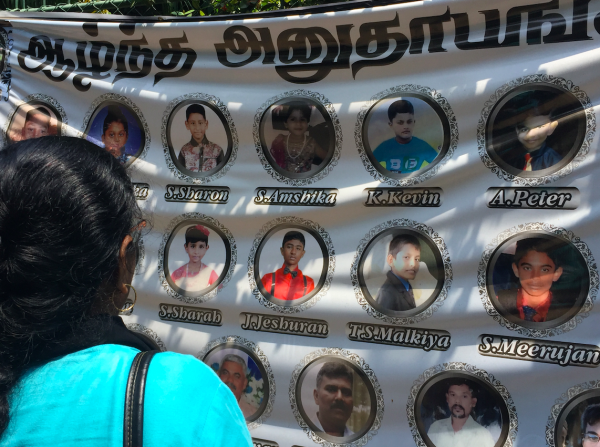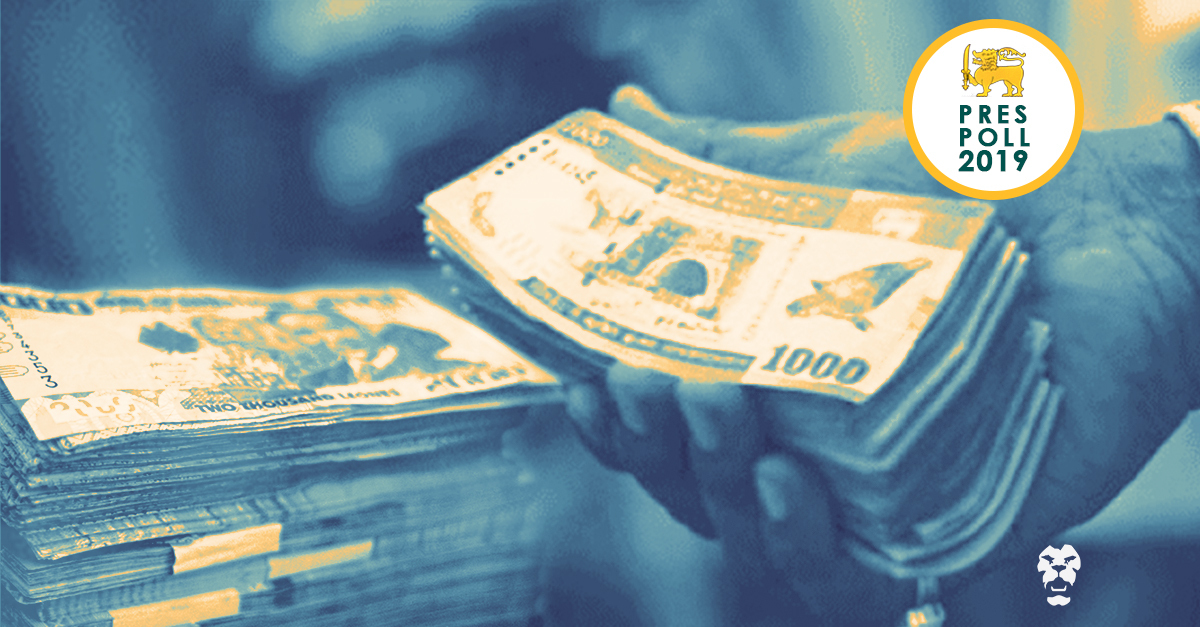
Election season is approaching, and soon campaigning will begin in earnest, and posters and billboards bearing the smiling visage of politicians will be up across the country.
Colourful public rallies featuring popular musicians, magniloquent speeches, brazen braggadocio, and political rhetoric will increase in volume as the day the humble voter becomes kingmaker draws near.
None of this is out of the ordinary during an election, but the generosity of politicians comes at a price: and the tab is often picked up by hidden hands in murky shadows.
Hidden Hands
These are the people with vested interests and secret agendas who greatly benefit if the candidate they’ve put their money on wins—and this is true not just of Sri Lanka.
In the U.S., for instance, where millions of dollars are pumped into campaigns, the Koch brothers stood out for years as private donors who greatly influenced policy within the Republican Party.
And while the oil-rich Koch brothers have used their vast fortunes on an array of good causes, including criminal justice reform and the United Negro College Fund, they are better known for their controversial decades-long pushback against environment and business regulation (which includes being primary sponsors of climate-change denial in the U.S. and exerting influence to cripple government action in this area).
Another influential donor in the U.S. is the gun lobby, specifically the National Rifle Association (NRA), which has long supported a number of members of Congress in exchange for opposition to gun legislation. In fact, a study conducted in 2018 indicated that more than half of the members of Congress are beneficiaries of the group, many enjoying financial relations dating back years. As a result, it is impossible to pass gun regulation in the U.S., even in the aftermath of increasing mass shootings.
But while U.S. election financing data is available (even online) with the Federal Election Commission (FEC), the absence of transparency, no cap on election spending, and a lack of accountability in Sri Lanka, leaves it open to political manipulating and manoeuvring.
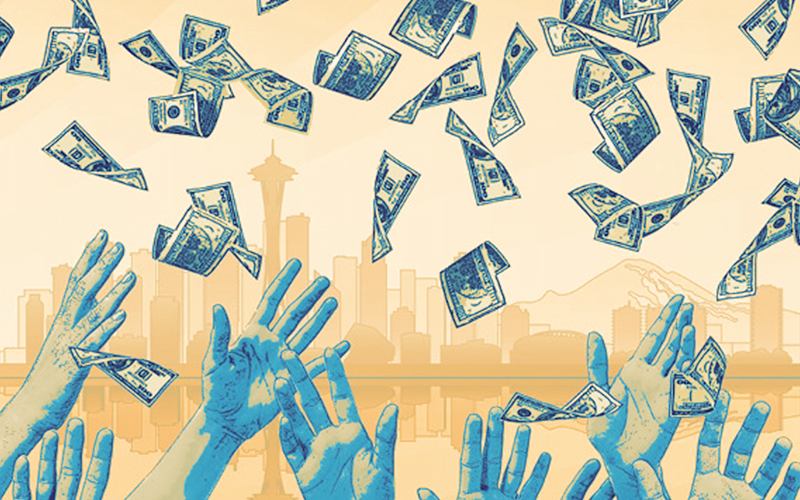
Sri Lanka
What is truly regrettable is that checks and balances on campaign funding were included in the Ceylon Parliamentary Elections Order in Council (1964), but removed with the enactment of the 1978 Republican Constitution.
It was also the 1978 Republican Constitution that brought in the Proportional Representation (PR) system, resulting in heavy spending by candidates to ensure they make the cut—in the words of U.S. campaign analyst G. Alexander Heard, this is the “cost of democracy”.
Attempting to manipulate an election unchecked, with massive amounts of money, has become commonplace in Sri Lanka today, and voters have come to expect the distribution of free gifts, from dry rations to electrical equipment.
But it doesn’t end there—the ridiculousness of some campaigns have been noted: in 2010, a (then) deputy minister used a helicopter at a cost of over USD 4, 000 for two hours to drop leaflets, and in 2014, sil redi (white cloth used for religious observances) with preferential numbers printed on them were distributed for free to potential voters.
Frauds And Irregularities
Historically, Sri Lankan politics has been dominated by two parties, and neither has been free from allegations of massive fraud and irregularities with campaign financing.
For instance, the New York Times revealed last year, that during the 2015 Presidential elections, ‘large payments from Chinese port construction funds had flowed into the campaign activities of a popular politician from one of the two parties’.
Later, it was revealed that a company affiliated with Perpetual Treasuries Ltd.—the company embroiled in insider trading scandal at the Central Bank—had financed the campaigns of several politicians in the other camp.
But despite revelations such as these being made public, very little is done to investigate and penalise offenders—the only arrests made in 2017—when two public officials were sentenced to rigorous imprisonment for misappropriating funds for campaigning.
Regulation Necessary
While it is clear that election funding laws in Sri Lanka are inadequate, there are other laws to deal with excesses—such as the Bribery Act—but these instruments are not wielded strongly enough.
Public awareness is high, but apathy is even higher, and although civil society activists have for years called for financial transparency during elections to ensure free and fair elections, there is no concerted citizen effort to strengthen the movement to hold legislators accountable.
Two draft Bills, one titled ‘Election Campaign Finance Bill’, prepared by the Election Commission in consultation with poll observers and other stakeholders, and another, prepared by poll monitors have made no progress since about 2017—although Chairman of the Elections Commission Mahinda Deshapriya has promised, that legislation would be in place by the next general election, due early next year.
As the eighth battle to elect a leader begins, new gimmicks have come to play, and while the emphasis has been placed on a “clean”, plastic-free campaign, the same cleanliness has not been extended to politics.
But if elections are to be truly free, fair, and devoid of manipulation, promises must become reality, and electoral laws must be enacted and implemented, to ensure hidden hands with big money no longer control the purse strings.


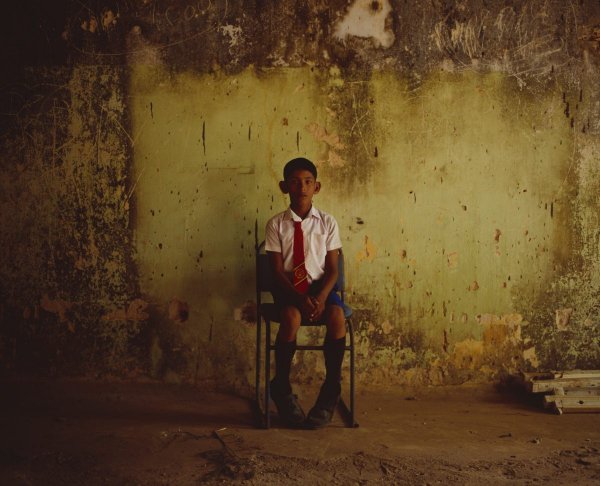

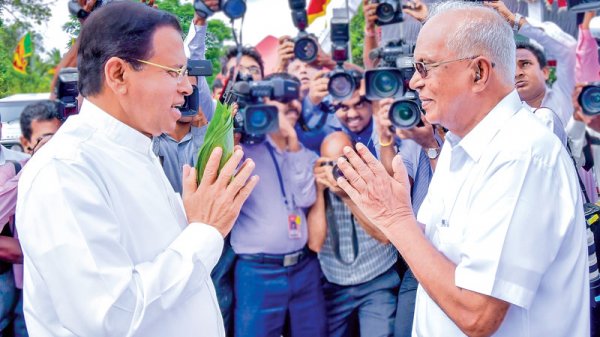
.jpg?w=600)

